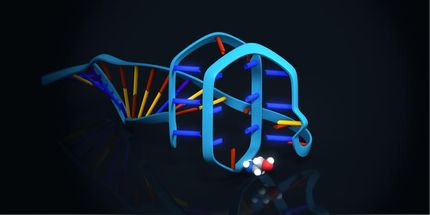GlaxoSmithKline acquires preclinical PPAR-gamma modulators from Bayer's osteoporosis research programme
Advertisement
London and Leverkusen, February 18, 2002 -- GlaxoSmithKline PLC (GSK) and Bayer AG today announce that they have entered into an agreement whereby GSK has purchased the rights to a Bayer preclinical development programme of PPAR- gamma modulators. Bay 54-9801, targeted for entry into the clinic in early 2003, has yielded exciting results in animal models of osteoporosis, demonstrating the formation of new bone. In addition, these compounds, which have a novel spectrum of activity at the PPAR-gamma receptor distinct from existing PPAR-gamma agonists, may have utility in a number of other important diseases, including diabetes.
Under the terms of the agreement GSK will receive patents and worldwide development and marketing rights for Bay 54-9801 and related compounds from Bayer's preclinical programme. Bayer will retain the right to claim certain compounds for its own use in the fields of cardiovascular and oncology.
"We are excited by this opportunity to build on an area of scientific strength at GSK by adding Bayer's novel PPAR-gamma modulator programme to our own expertise. Therapeutic intervention with these innovative compounds has the potential to enhance bone formation in osteoporosis, rather than affect bone loss which is targeted by current therapies", said Ken Batchelor, Senior Vice President of the Metabolic, Musculoskeletal and Viral Diseases Centre for Excellence in Drug Discovery at GSK.
"We are pleased that GlaxoSmithKline, an ideal partner in the PPAR field, will develop Bay 54-9801 in important indications such as osteoporosis. This is a further example of Bayer's strategy to focus on its key strengths and to capitalize on our strong research platform by forming partnerships with other companies" said Prof. Wolfgang Hartwig, Executive Vice President and Head of International Research at Bayer's Pharmaceuticals Business Group.
Organizations
Other news from the department business & finance

Get the chemical industry in your inbox
By submitting this form you agree that LUMITOS AG will send you the newsletter(s) selected above by email. Your data will not be passed on to third parties. Your data will be stored and processed in accordance with our data protection regulations. LUMITOS may contact you by email for the purpose of advertising or market and opinion surveys. You can revoke your consent at any time without giving reasons to LUMITOS AG, Ernst-Augustin-Str. 2, 12489 Berlin, Germany or by e-mail at revoke@lumitos.com with effect for the future. In addition, each email contains a link to unsubscribe from the corresponding newsletter.
Most read news
More news from our other portals
Last viewed contents






















































